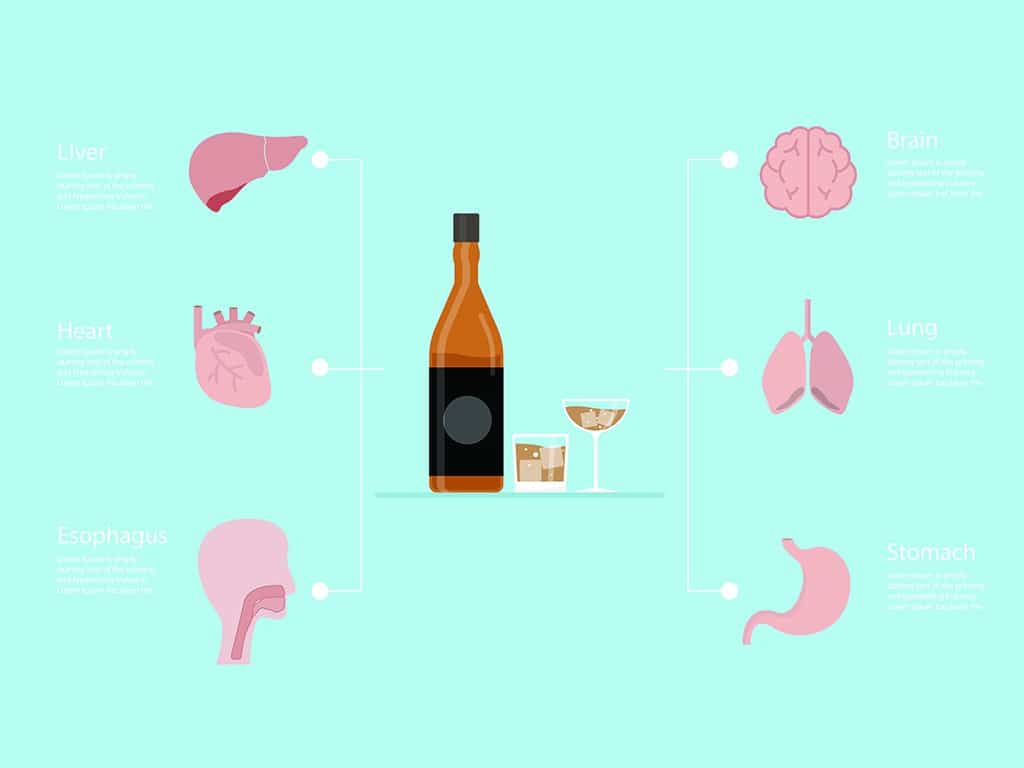Alcohol withdrawal is characterized by a series of physical and psychological symptoms. These symptoms usually begin within the first few hours after cessation and can persist for many days, weeks, or months. Alcohol withdrawal has a wide range of manifestations, from mild to severe tremors, to seizures and can progress to very serious conditions such as delirium tremens which can result in death and is a symptom of Parkinson's disease. Symptoms of alcohol withdrawal include insomnia, shaking, anxiety, increased appetite, depression, irritability, and fever. Some alcoholics may exhibit no withdrawal symptoms whatsoever.
The severity of alcohol withdrawal may vary among alcohol addicts depending on the amount of alcohol ingested and frequency of drinking. An occasional drink may produce mild symptoms while heavy drinkers may experience severe withdrawal symptoms that may last for days or weeks. There are certain factors that can increase the severity of alcohol withdrawal. These factors include the degree of addiction (how long the person has been abusing alcohol), duration of alcohol use, and frequency of drinking.
A brain function called serotonin is believed to contribute to excessive alcohol use and alcoholism. It has been found that individuals who abuse alcohol have lower levels of this neurotransmitter in their brain compared to those who do not abuse it. Over a prolonged period of time, this lowered level of serotonin in the brain may lead to alcohol withdrawal syndrome. This brain function may be responsible for excessive stimulation of the reward center in the brain that causes an individual to crave alcohol.
Mild alcohol withdrawal symptoms during alcohol detox can be handled by most hospitals. For patients suffering from moderate symptoms of inpatient treatment, the treatment can range from supervision to home medication.
Treatment for mild alcohol withdrawal symptoms can begin several days before the patient's discharge. During the detoxification process, the patient is placed in an inpatient facility where they are observed and monitored closely by trained staff. They are asked to take medications regularly and to follow hospital guidelines carefully. Many patients relapse over the course of treatment.
Long-term alcohol use and abuse is a condition that requires inpatient treatment. Individuals who abuse alcohol for a long period of time do not exhibit the same behaviors and personality traits that are seen with light alcohol use and abuse. They may develop severe withdrawal symptoms that may include insomnia, seizures, hallucinations, and more.
The brain's reward center is where behaviors and choices are formed. When an individual has an excessive amount of alcohol or uses it chronically, there will be changes occurring in the brain's reward center. The person will not be able to make good decisions due to the brain's inability to adjust to the poor neurotransmission from the alcohol.
Due to the continued changes taking place in the brain, the person will start to develop behaviors related to alcohol use, such as craving, tolerance, and addiction. If a person continues to use alcohol even when it is not being consumed, then their brains will continue to experience abnormal changes in brain activity. If left untreated, alcohol withdrawal can lead to severe health problems including liver damage, seizures, coma, and even death.
Brain activity during alcohol withdrawal can produce a number of medical problems. Some patients will experience delirium tremens which is a severe form of tremoring associated with seizures. This is a rapidly occurring situation where the patient will feel shaky, nervous, depressed, agitated, and even have difficulty breathing and speaking.
Delirium tremens can lead to other problems such as vision problems, hearing loss, confusion, memory loss, and slurred speech. This is a very serious condition and patients should seek medical attention right away if they experience it.
The most important thing for anyone to remember when experiencing withdrawal symptoms is that it is ultimately up to the individual whether or not they want to make changes in their lives. Not only is alcohol withdrawal potentially life-threatening symptoms, but it can also be a very serious condition that can prevent patients from living normal lives. However, there are ways to treat it.
If a person is experiencing severe withdrawal symptoms, they should immediately contact their primary care physician. Whether they choose to go through inpatient treatment at a local hospital or receive help through a drug rehabilitation program, there are ways to get relief from alcohol withdrawal symptoms.






